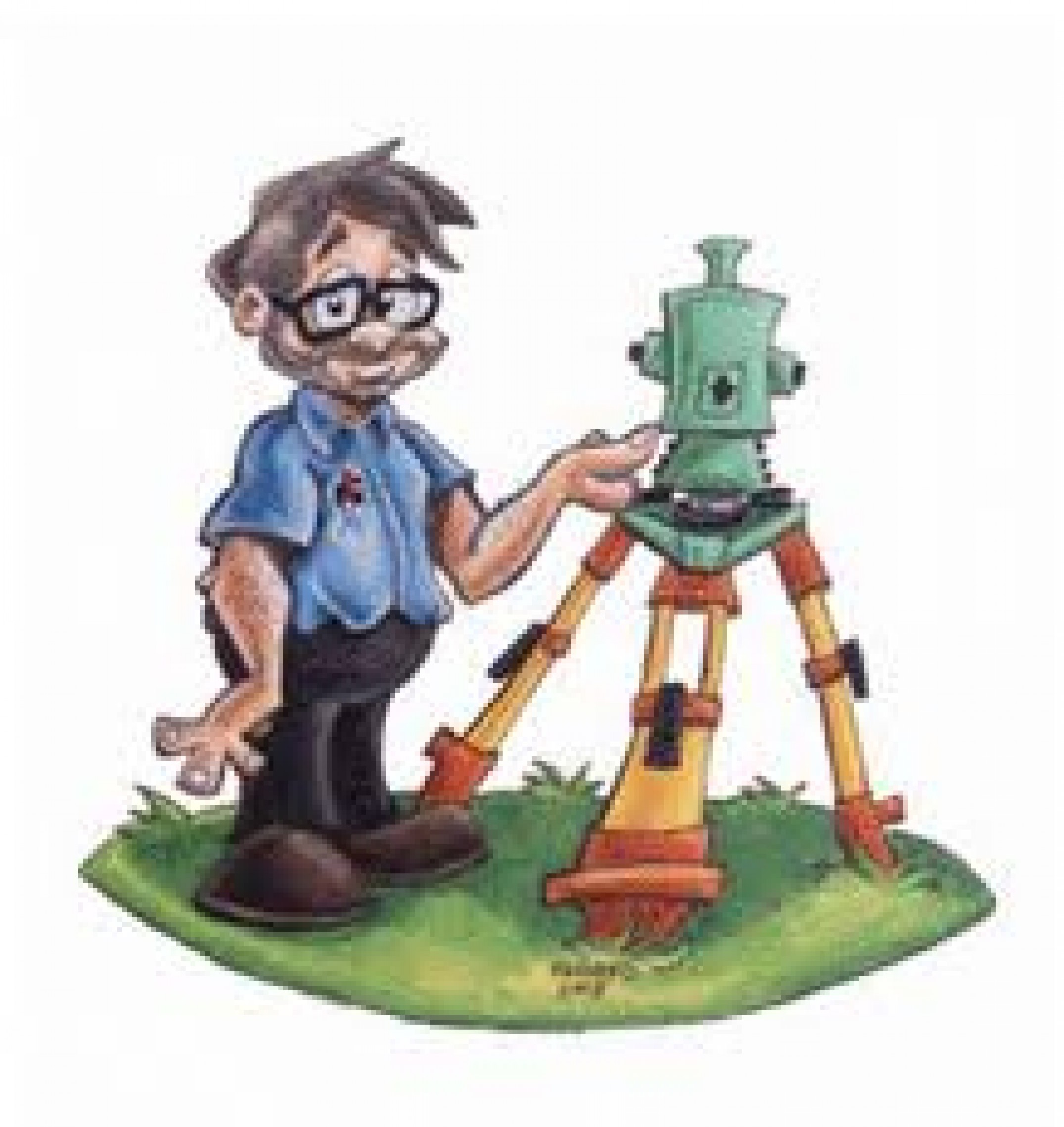If gifted people want to fit in, they obviously need sufficient Gifted Space.

Do you fit in? Alone or in clumps it looks like it from here
How much do you need?
Read on . . .
Take a seat in the sky and look down at people on the move. See how they respond when they get physically closer to each other. In Japan they’ll touch. In Texas they’ll stand a foot apart
Yet these are minor differences. The basic process of flowing around each other and occasionally clumping into groups seems to be a mutually understood way that humans transport themselves.
From up here in the sky, in other words, all of humanity appears much the same.
Suspect the visual
For most of us, seeing is believing.

Seeing doesn't always make it clear what you should be believing.
This means that because we all look much the same we can easily fall into a dangerously false assumption: that we actually are all the same.
Even though we’re obviously not all alike, the ‘uniform’ myth can appear to have some validity.
After all, vast industries are founded on it.
Pharmaceutical companies, aeroplane manufacturers, clothing manufacturers, defense contractors all build their offerings around a ‘standard’ human being.
Services such as banking, law, and psychology all structure themselves round the assumption that we want the same things: money, justice, understanding.
Yet we aren’t the same and we don’t want the same things.
Commercial gain, individual loss
These broad brush commercial and political approaches to assessing the human being work within limited objectives.

Seeing humanity as a money tree makes it hard to have a meaningful conversation.
The organizations concerned are not seeking truth but sales.
They are essentially systems for converting the energy of individual need into a more flexible energy: money. They know they can appeal to a big enough chunk of the population to grow year by year. That is the limit of their interest in the human animal.
You and I might see the great mass of population the same way. People with visions of huge consumer empires, such as Rupert Murdoch and Sam Walton, must do.
But seeing ‘us’ this way isn’t going to help you meet the perfect partner and fall in love. Or even help you get to know yourself better.
So take a closer look

Sometimes a man in a red dress is not a soldier.
Generalizing won’t offer guidance in selecting a sports team or even a specific lawyer for a specific task.
Clearly, some human activities cannot be conducted on a global scale.
In close-up, our superficial differences of height, clothing choices, and speed of movement become more significant. The dress on that woman is sending a signal. And (to avoid further accusations of sexism) so does the one on that man.
At a more intimate level, we see a human and its appurtenances. We make a judgement based on past experience. We think we have a workable idea of who s/he is.
And we’re usually wrong.
Who do you think you are?
If the visual/behavioral view of humans was comprehensive it would be easy for the world population to divide itself up into happy like-minded enclaves.
All the men in red dresses would line up here. All the women in black trousers line up over there.
Then subdivide: all the men in red dresses who are soldiers form a group here. Of these, all who abstain from alcohol can group there. Those who don’t smoke either, go there.
Play this game of group-by-category to its conclusion and you end up with one person in each group – and the world goes back to looking a lot like it does today.
What’s this got to do with being gifted?
Gifted individuals have a hard time, as they put it, fitting in.

What's weird about a soldier in a red dress? Meet Corporal Hodge.
Well, trust me, so does a teetotal male soldier in a red dress.
Yet when you see him in his uniform marching along with thousand of other soldiers you’d never know it.
And perhaps when he’s in marching mode he feels as if he’s fitting in just fine.
I think therein lies the lesson for us gifted folk.
The person is not the picture
The point is that the soldier is not a man in a red dress or a man in a uniform. He isn’t anything you can see to judge at all. Not even in his material expression.
He’s just like you and me: a notional space.
As we saw at the start, we each occupy a space. However, this is not just the volume of our body and the air/energy buffer around it. We are more than 8 cubic feet of flesh and bone.
Ours is a notional space that includes ourselves and our perception of our position in the world.
We could call it a sphere of interests.
It is likely to be greater than our sphere of influence.
I think it’s most useful to see it as our sphere of potential. This is where we ‘see’ ourselves operating.
I also believe that if it’s in your sphere, you can do it.
Volume of a space

If this is your natural space, how will you ever squeeze it into a suburban living room?
The volume of this space is directly related to giftedness. It is not measurable by ruler or calibrated beaker.
Instead, it is measurable by topic, or awareness, or understanding.
Go to a party. Listen to the conversations. Strip out any that are specialized because of work relatedness.
Your gifted friend is not the one discussing the quality of the peanuts in the bowl – unless it’s to link them to the spread of aflatoxins in the general population and some garden birds.
The general talk swings from the weather to the need to bring back capital punishment for children under ten.
Meanwhile, the gifted group is having fun exploring the likelihood that blocktime might offer the first credible basis for a scientific proof of astrological predictions.
Or enjoying the way a curtain’s shadow creates a profound feeling of warmth and suggestibility within them.
Unfortunately these things are discussed only within your space because you’re the only gifted person there.
So you’re bored out of your mind – which you’re filling with alcohol or cheese and crackers in a desperate attempt to achieve equanimity within and affinity without.
You’ve resigned yourself to another evening of failure to make contact; more self-condemnation for being inadequate with small talk; more self-hatred for being an alien etc etc.
Why can’t you be like everybody else?

"What on earth did I come for? I knew it would feel like a punishment."
“I’m a bit of a geek,”; “I’m such a nerd,”; “I’m something of an oddball.” and, most of all: “I’ve never really seemed to fit in.”
These are statements I hear all the time. Sadly, they often come in the form of self-condemnation, as if difference were a crime or at least a major societal defect.
In fairness, these words are not often said with conviction. You can tell there’s doubt behind the words, as if the speaker’s really saying: “I don’t actually think I’m a geek but I must be because I don’t know how else to explain how I feel.”
Over-sized sphere of potential
The truth is, of course, that you really don’t fit in.
If you could see the size and shape of your notional space you’d see it filled the room. So either there’s only room for yours or no room for yours.
And your space is you.
So there might as well be a sign saying: “Please leave yourself at the door.”
Having met that request by numbing yourself one way or another, you’re left bereft of anything to say. So your healthy pursuit of social interaction peters out once again.
And you go home kicking yourself for your awkwardness.
What’s to be done?
Our cross-dressing soldier might be able to help.

Can you spot the soldier in the red dress?
His ability to ‘fit in’ with the troops offers a guide to enjoying social interaction without having to poison yourself with ‘comforting’ substances or just sitting abjectly in the corner.
Before heading anywhere social:
- Start by calling up that wonderful resource: your giftedness;
- Envision yourself, not as free to roam the full extent of your space but as a soldier, temporarily subject to external and limiting regulation;
- Think about where you’re going, its nature, its awareness level;
- Ask what you want from it (this deserves a book in itself but if you have a clear idea where you’re headed you won’t expect too much) ;
- Strategize and stay focused on your goal.
In other words, instead of trying to fit the whole of your space into a room too small for it, select a subset of space relevant to your environment and use it to its full.

"I've always been fascinated with human sensitivity. Can you feel this?"
Or you might conduct a survey in such a way that your respondents are unaware of your intent but flattered by your attention.
Basically, it’s all about lowering your expectations. You are rare, so the chances of finding a soulmate are few. However, if you simply want to feel like an acceptable part of the human race, you can bring that about.
How to mess up
As in all things, it’s wise to take care.
When I set out to a gathering with the intention of feeling popular, or being loved or important, I almost invariably screw up.

"Let me delight you with my new invention! . . . Please!!"
As I head home afterwards I kick myself for being such a conversation hog, for being so insensitive, for forgetting my own instructions to myself.
It usually happens when I’m most anxious about the gathering in question.
However, when I go with the intention of making others feel good about themselves it’s a different story. I enjoy seeing them relaxing into a warm sense of their own lovability.
I may even have the fun of having them flirt with me.
And I go home – often quite early – with a warm feeling derived from the pleasure I’ve absorbed from others’ enjoyment of my words.
Job done. Reward received.
In conclusion
Know your space. Know the volume of potential you occupy in the world.
Then operate from a subset of that space depending on your immediate social environment. Make your choice of subset conscious, or you will feel distressed.

"When it comes to long-term relationships I insist on finding an exact match for all my space."
It will probably be hard to find a like-sphered partner but it is essential – in love or in work – for ongoing happiness and growth.
And if you ever find yourself in a room – or even a virtual ‘space’ – with a gifted equal you will discover that rooms have no walls and that the virtual can be real.
Go seek!
Christopher, on my way to the kickoff meeting for the coming year’s work for our largest client. What better message could I have received in preparation than to choose a subset of my “giftedness” upon which to focus; focus attention on supportive statements that make my staff feel good about their understanding of the client and the work; chime in where appropriate to focus the client on strategic goals and objectives rather than coming up with new tactics — a gentle word here and there. My goal today is not to amaze anyone with MY creativity, strategic understanding and tactical prowess; at my age and place in this process, I accomplished that long ago. My subset today will focus on offering ‘bits’ of support, insight or guidance where they’re needed to keep it all on track. Thank you for the message and the timing of its distribution. Ph
Hi Christopher, As I’m bracing myself for what promises to be a fairly gruesome family gathering this Sunday, your blog is very timely. With long years of practice I don’t feel I struggle to respond or adapt to whatever the conversation seems to be though it’s always fun to throw out a few clues and see what interesting revelations appear – or don’t. What has felt really helpful is your comment about realistic expectations. It feels both sobering and positive to realise I don’t need to go in resentful, martyr mode but can choose what’s likely to be most rewarding for us all. One final thought is that some places where I’ve forced myself to go have been where I’ve met the people who matter most to me. So thanks for sending this before Sunday.
Christina
Hi Christopher,
Solution-Focused resource oriented talk works well in social gatherings (“wow, how did you do this!”, “that must have been hard”, “it’s so nice to have a hobby” … “I wonder how … “, “tell me more about …”). I just sometimes imagine two stray gifted people doing such or similar social mimicry to each other. Would that not be a great piece of comedy? Even better if both of them recognise the game that’s being played and keep playing it to absurdity :-)
Thank you for that image :-)
Hugs,
Kirsten
Hi Kirsten,
That is a fun picture. It reminds me of a day in my dim and distant past when I was working as a deck hand on a French yacht. The owner met up with another French yacht in mid-Med and we rafted up. I chatted in (struggling) French with the deck hand off the other yacht. I thought I was doing rather well. “At last my French is working!”. Such joy. But after about 4 hours we discovered we were both English and therefore shared the same 100 word vocabulaire. Duh!
Wow, this is a fantastic description of a typical social outing. I just found your site today and am mesmerized- thank you.
This made me realise how much I have changed since I got separated from my wifes family who never tolerated me questioning the “rooms” we live I in. Basically I got thrown out for causing disorder. And now I feel much better with the others in the hall ;-)
Thank you for writing this!
While I find your suggestions helpful in feeling more comfortable in a room, it still seems like “dumbing down” as though it’s a game instead of genuine social interaction. How are you to find a soulmate if you are only projecting a small piece of who you are?
Maybe we need a hook – a coded invitation to intellectual stimulation!